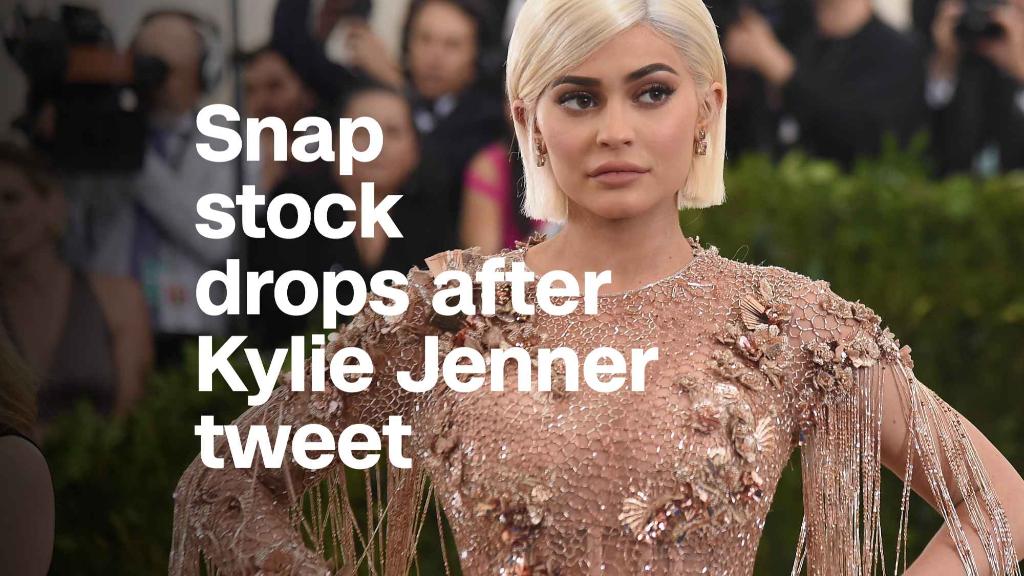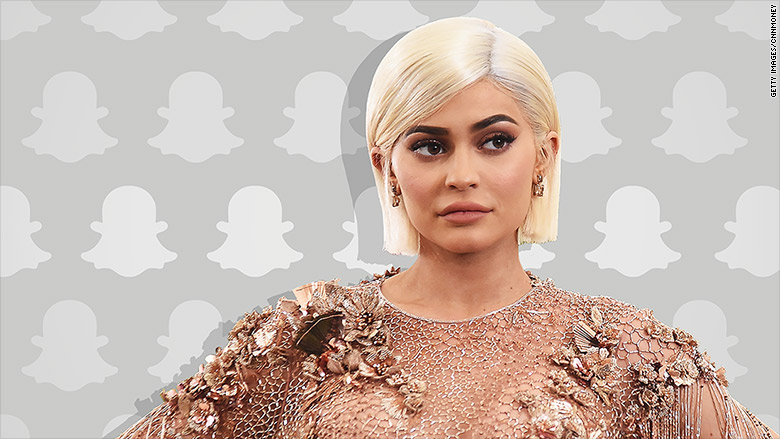
Evan Spiegel became a billionaire by proving people wrong.
The Snapchat cofounder was early in evangelizing the potential for sending pictures to an intimate group of friends while many wrote off his messaging app as little more than a tool for sexting.
He shocked many industry watchers by turning down Facebook's widely reported offer to buy Snapchat for $3 billion in 2013, only to see his personal stake in the company top that amount when it went public last year.
Now, Spiegel faces what could be his most high-stakes decision yet. He must weigh whether to push forward with a controversial app redesign that could either reinvigorate Snapchat's growth or drive users, including Kylie Jenner, into the arms of rival Instagram.
The reality TV star and influential Snapchat user tweeted this week that she no longer uses the app. Jenner's tweet was enough to cause Snapchat's parent company's stock to plunge 6% Thursday, wiping off $1.3 billion in market value.
Jenner's potential departure, while certainly a threat to the company, is just one piece of the much larger, weeks-long user backlash that still shows no sign of letting up.
The app previously featured content from friends, publishers and celebrities on one page. Now, there's one page for publishers and another for friends. The goal was to attract more users and create a better user experience by separating friends from content.
Related: Snapchat responds to users critical of redesign: 'We hear you'
More than one million people have signed an online petition calling for Snapchat to remove the update, saying it's more difficult to use. The company has also been bombarded with negative app reviews, prompting one analyst at Citi to downgrade the stock.
"While the recent redesign of its flagship app could produce positive long-term benefits, the significant jump in negative app reviews since the redesign was pushed out a few weeks ... could result in a decline in users and user engagement," Citi analyst Mark May wrote in an investor note this week.
And that was before the Kylie curse.
Snapchat is hardly the first internet company to clash with users, even prominent ones, over a major new feature or redesign. It has become something of a rite of passage for tech companies, particular those building social platforms.
Roughly a million Facebook (FB) users joined a group protesting the company's decision to introduce News Feed in 2006. At the time, Facebook only had 8 million users. Twitter (TWTR) was hit by breathless complaints with hashtags like #RIPTwitter from users and celebrities in 2016 about its plans to shift from a reverse chronological timeline to more of an algorithmically ordered feed. Its stock also fell.
Yet, both companies pushed forward with their plans and later touted them as central to their success. At Facebook, in particular, the team's ability to stare down the user revolt is held up as an example of its vision and long-term thinking.
"I remember there were actual protesters in the streets outside our office demanding we change," Facebook CEO Mark Zuckerberg wrote in a post on the 10-year anniversary of the News Feed change. "But one of the things I'm most proud of about Facebook is that we believe things can always be better, and we're willing to make big bets if we think it will help our community over the long term."
The Snapchat backlash could prove to be an equally defining moment for Spiegel and Snapchat. If he can once again prove the critics wrong, it may go a long way toward assuring investors and employees that he is the product visionary that insiders have built him up to be.

Unlike Zuckerberg in 2006, Spiegel's showdown with users comes in his company's difficult first year on the public market. Snap (SNAP) had just begun to show new life on Wall Street with a better-than-expected earnings report this month. Then the backlash pushed Snap's stock down to the cusp of its IPO price.
Unlike both Facebook and Twitter, Snapchat's audience has options. Facebook users may dislike certain features, but there's no other service that provides as comprehensive a directory of people — and their birthdays. Likewise, Twitter remains the top service for discovering real-time news — and for complaining about Twitter.
But Instagram has managed not just to clone Snapchat with its Stories feature, but also to make its clone more popular than Snapchat. Case in point: Jenner has shared more than 50 posts on Instagram Stories since abandoning Snapchat.
At first, Spiegel sounded characteristically unfazed by the user backlash, noting that some complaints actually "validate" his thinking with the redesign.
"One of the complaints we got is, 'Wow, I used to feel this celebrity was my friend and now I don't feel like they're my friend anymore,' " Spiegel said at a tech conference earlier this month. "Exactly. They're not your friend."
This week, however, Snap acknowledged that the redesign has "felt uncomfortable for many" and promised to tweak the app with certain vague concessions. It is not undoing the redesign, though -- at least not yet.
"Our goal with the recent redesign is to make Snapchat more personal for everyone," a Snapchat spokesperson said in a statement provided to CNN on Friday. "This new foundation is just the beginning and we will always be grateful for any feedback from our community as we roll out new products."
The longer the backlash drags on, the more likely it becomes Spiegel and Snapchat may waver.
"Everybody gets mad for a few days, but it eventually blows over," says Ryan Detert, CEO of Influential, a marketing platform that helps brands find influencers to promote products on social media platforms like Snapchat and Instagram. "This one is the longest I've seen, so that doesn't bode well for Snapchat."

